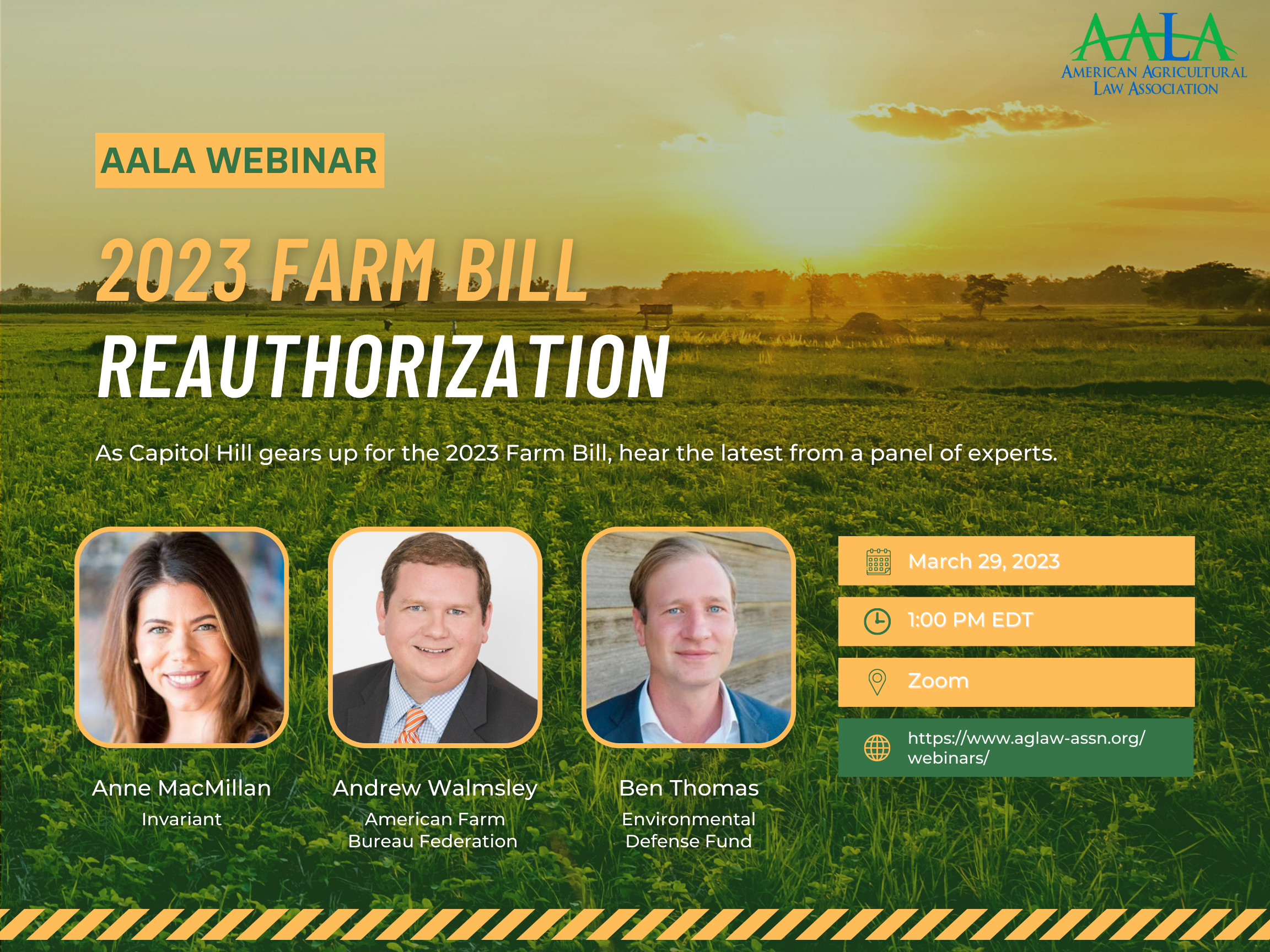Past Webinars
Video replays of the webinars are available to members in the Webinar Archives of the Resources section of the AALA website. Click “Member Login” in the upper right corner and login as a member to access this content. These webinars are organized by AALA’s distance education committee, which includes members of the AALA. The technology platform is sponsored by the Center for Agricultural Law & Taxation at Iowa State University.
.
Tuesday, June 17, 2025, 12:00 PM–1:00 PM (ET)
Making America Healthy Again: How is the MAHA agenda impacting the food industry?
Food industry policy and legal experts provide insights into the Making America Healthy Again agenda, including an update on the MAHA Commission, reforms to the GRAS regulations, banning of food dyes, and more. Our speakers come with a wealth of policy and legal experience, representing some of the most major food manufacturing brands in the country.
Jessica O’Connell, Partner, co-chairs Covington’s market-leading global Food, Drug, and Device Practice Group. Drawing from nearly twenty years of experience working at FDA and in private practice, Jessica provides strategic advice to a broad range of companies and trade associations in navigating regulatory frameworks and engaging with food and drug regulatory bodies and Congress. She works closely with clients to develop product strategies that are low-risk from both a regulatory and litigation perspective while also meeting marketing goals and objectives. She also regularly counsels clients regarding potential crises, such as recalls, regulator investigations, and other unanticipated regulatory attention.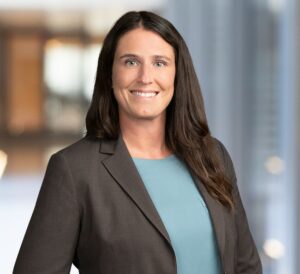
Jessica’s practice focuses on food and beverages, dietary supplements, cosmetics, and OTC drugs. She has engaged with Congress and state legislators on cosmetic and drug legislative efforts and alternative protein and other food labeling requirements and has represented clients in both FDA and FTC investigations, including negotiating consent decrees and responding to civil investigative demands, and actively practices before the NAD. Jessica has specific expertise regarding the regulatory framework for new and emerging food technologies, including alternative protein ingredients and products and specialized nutrition products such as infant formula and medical foods, the marketing of cosmetics and OTC drugs, including sunscreens, Proposition 65, organic labeling, the federal and state legal landscapes surrounding the development and marketing of products containing CBD, and claim substantiation requirements, as well as manufacturing and supply chain requirements under FSMA and FDA’s implementation of MoCRA.
Mary Dee Beal, Principal, joined Kountoupes Denham Carr & Reid in 2022, bringing more than a decade of federal policy experience, including senior roles in the Executive Branch and the Congress. She provides a deep understanding of complex policy and congressional processes to the health care and energy practices at the firm.
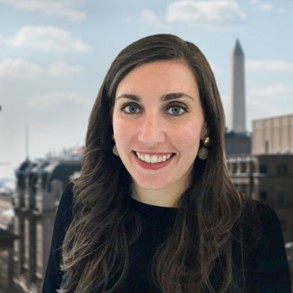 Most recently, Mary Dee served on the Senate Republican Policy Committee for U.S. Senator Roy Blunt (R-MO), where she provided analysis and education on issues related to tax, budget, appropriations, and small business. She worked closely with staff across the Senate Republican Conference, as well as Republican leadership and key Senate committees to advance Republican priorities.
Most recently, Mary Dee served on the Senate Republican Policy Committee for U.S. Senator Roy Blunt (R-MO), where she provided analysis and education on issues related to tax, budget, appropriations, and small business. She worked closely with staff across the Senate Republican Conference, as well as Republican leadership and key Senate committees to advance Republican priorities.
Prior to her service in the U.S. Senate, Mary Dee served as Senior Advisor to Secretary Sonny Perdue and Acting Chief of Staff to Deputy Secretary Stephen Censky at the United States Department of Agriculture. During her time at USDA, she served as the principal advisor to the Secretary on climate, innovation, ag tech, and agriculture research priorities. At the onset of the COVID-19 pandemic, she led the Department’s crisis management strategy to preserve the national food supply chain and worked closely with officials at the U.S. Food and Drug Administration, Centers for Disease Control and Prevention, Federal Emergency Management Agency, Department of Transportation, and the National Economic Council as the interagency policy lead for the federal food supply chain response.
Wednesday, May 21, 2025, 1:00 PM-2:00 PM (CT)
Navigating Complexities of Agribusiness 1031 Exchanges
This session goes beyond general 1031 exchange presentations and explores the more complex issues often seen in 1031 transactions specific to agribusiness including: lesser-known variations like reverse and build-to-suit exchanges and provide actionable solutions to complex 1031 exchange problems.
Max Hansen, Managing Director of Accruit, utilizes his extensive knowledge of IRC Section 1031 and 40+ years of experience in the real estate and 1031 industry to help taxpayers defer capital gains, depreciation recapture, and net investment income tax through 1031 real property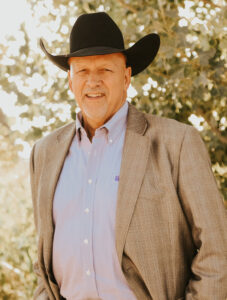 exchanges. An active member of the Idaho, Montana, and Utah bars and many other professional organizations, Max regularly conducts seminars and advises clients nationally on Section 1031 exchanges.
exchanges. An active member of the Idaho, Montana, and Utah bars and many other professional organizations, Max regularly conducts seminars and advises clients nationally on Section 1031 exchanges.
Max has written and spoken extensively on all aspects of 1031 exchange transactions, large and small, spanning the vast array of real property interests and transactions which qualify for tax deferral. The endless possibilities range from agricultural land, large commercial assets, residential rental properties, oil and gas rights, easements, long-term leasehold interests, timber rights, paleontological and archaeological rights, and fractional ownership interests such as Delaware Statutory Trust and Tenancy in Common property interests.
Max received his undergraduate degree in Political Science from Carroll College in Helena, Montana and his Law Degree from the University of San Diego, School of Law. He was admitted to the Montana Bar in 1976 and other bar associations thereafter. He is admitted to practice before Federal Courts including the U. S. Supreme Court. Max earned his Certified Exchange Specialist® accreditation through the Federation of Exchange Accommodators in 2002 and was awarded the FEA President’s Award in 2016 and 2022.
When not working in the 1031 exchange industry, Max enjoys time with his wife and family in Northern Utah and Southwestern Montana. After family his next loves are horses, dogs, camping, fishing and the wide-open spaces.
.
Thursday, April 24, 2025, 1:00 PM–2:00 PM (ET)
Life After Chevron Deference: A Practical Guide to Challenging Agency Actions After the Loper Bright and Relentless Cases
Christopher (“CJ”) Frisina will walk through the implications of the Supreme Court’s decision to overturn Chevron deference, providing practical advice on approaching challenges to agency rulemakings and decisions.
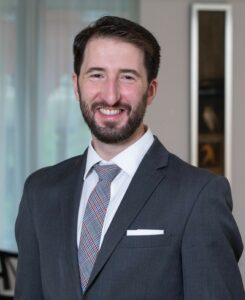
Christopher (“CJ”) Frisina is Counsel at Alston & Bird, LLP and advises clients on challenging agency rulemakings, enforcement actions, and administrative decisions under the Administrative Procedure Act.
.
Thursday, March 27, 2025, 11:00 AM–Noon (CT)
What Can Agriculture Expect (And is Already Seeing) From the Trump Administration?
We are currently under 100 days into the Trump Administration, during which we have witnessed a rapid series of policy shifts affecting farmers and rural communities. We invite you to participate in an expert panel featuring senior leadership from the USDA (invited) and political appointees from the first Trump Administration, providing an in-depth perspective on the opportunities and challenges facing agriculture and rural America.
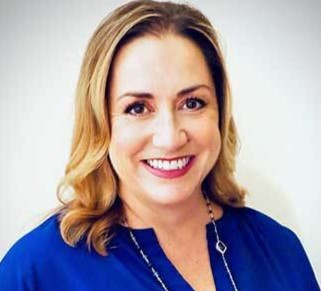
Rebeckah Freeman Adcock is Vice President of U.S. Government Relations for the International Fresh Produce Association (IFPA). She manages a team of policy professionals representing the fresh produce industry focused on U.S. matters. Rebeckah has nearly 30 years of experience leading agriculture, environment, infrastructure, homeland security, and economic policy. She has extensive regulatory, legislative, business, and strategic communications expertise in private, non-profit, and government sectors. Rebeckah is a recognized leader in the food and agriculture sector. She is an appointed Agricultural Policy Advisory Committee member on trade matters to the Secretary of Agriculture and U.S. Trade Representative (USTR). She also serves on the board of directors for the farmer-owned cooperative Southern States and Agriculture Future of America, the premier leadership program for young adults in food and farming. Rebeckah has also held federal appointments to the U.S. Environmental Protection Agency’s Pesticide Policy Dialogue Committee (PPDC), USDA’s IR-4 Advisory Committee, and the Kentucky NRCS State Technical Committee.

Joby Young became the Executive Vice President of the American Farm Bureau in July 2022. He leads the AFBF staff, managing across all departments to achieve the goals of the President and Board of Directors and fulfill AFBF’s mission.
Joby has more than a decade of experience in food and agriculture policy, from the halls of Congress to the Executive Branch. He served as Chief of Staff to Agriculture Secretary Sonny Perdue after serving in that same role for the Deputy Secretary and several USDA offices. He also previously served as Chief of Staff in the House of Representatives and as a consultant in the private sector. Joby is a graduate of the University of Georgia, with degrees in History and Communications, and he holds a law degree from the UGA School of Law.
.
Thursday, February 27, 11:00 AM–Noon (CT)
Paying for Long-Term Care Without Selling the Farm
Join Adam Dees, a practicing Kansas Elder Law attorney and a partner of Clinkscales Elder Law Practice, P.A. for a discussion on:
- How to pay for long-term care WITHOUT selling the family farm or going broke!
- How to protect your spouse and family
- Health information and how to choose decision makers
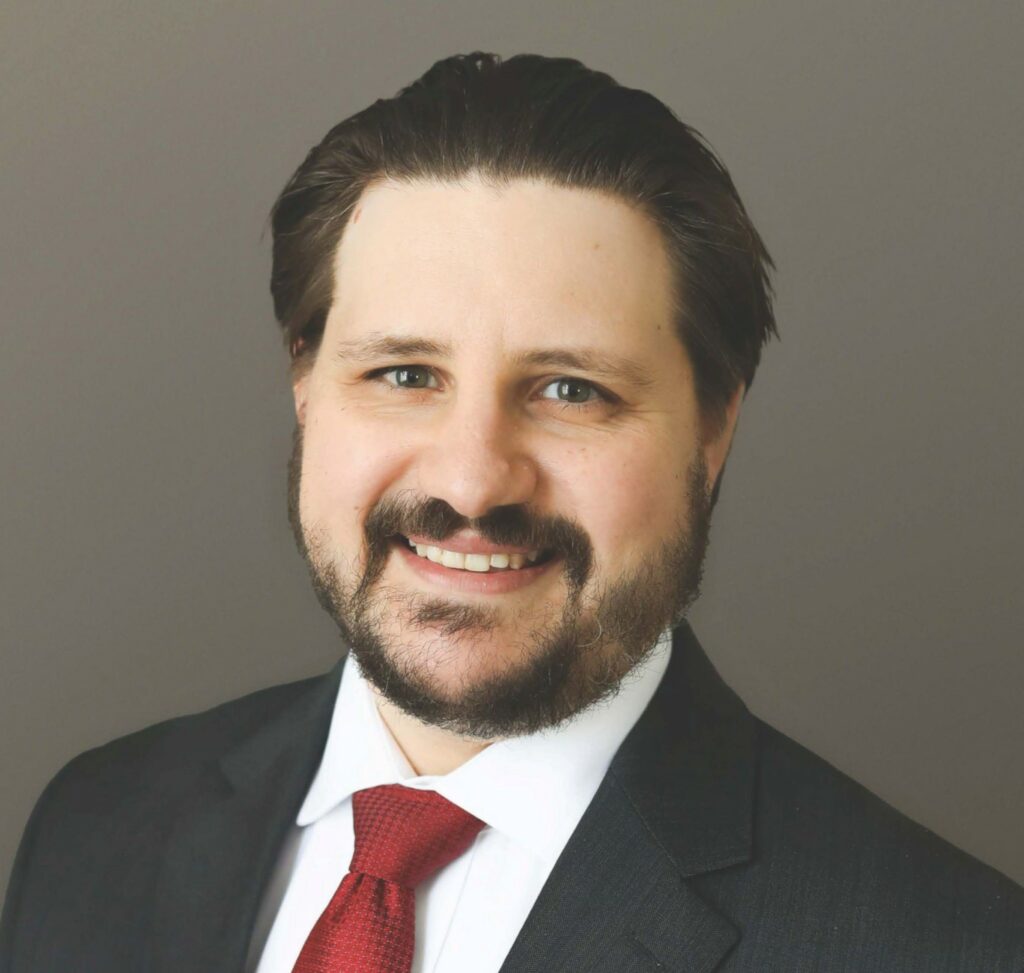
Adam Dees is a practicing Kansas Elder Law attorney and a partner of Clinkscales Elder Law Practice, P.A. He is a Certified Elder Law Attorney by the National Elder Law Foundation and a Kansas Rising Superstar Lawyer for 2023 and 2024.
Adam dedicates his practice to estate planning, long-term planning, special and supplemental needs planning, and helping seniors find, get, and pay for good care. Adam authored a booklet, “The Consumer’s Guide to Supplemental Needs Planning” focused on helping people with families who have special needs plan for their care and also educates people through seminars like “Estate Planning Secrets,” “Don’t Lose the Farm: How to pay for Long-Term care without going broke,” and “Doing Dementia Differently.”
Thursday, December 5, 2024, 11:00 AM–Noon (CT)
Election Impact on Agriculture
The 2024 election results are in, but what do they mean for agriculture? In this webinar, our bipartisan panel of agricultural policy experts will discuss the results of November 5, 2024, and provide insights into President-Elect Trump’s administration and what we can expect to be priorities in the 119th Congress with Republicans at the helm.

With more than two decades of food, agriculture, and trade policy experience across Congress, the U.S. Department of Agriculture (USDA), and the private sector, Ken Barbic has carved out a leadership role in Republican politics. In 2018, President Donald Trump appointed him as the assistant secretary for congressional relations at the USDA. In this Senate-confirmed role, he provided political and strategic guidance to the secretary and senior leadership about engaging in Congress. Before joining Invariant, he was the head of policy and government relations at Farmer’s Business Network, where he positioned the company as a thought leader on top issues shaping the industry. Previously, he worked for the Western Growers Association, the Office of the U.S. Trade Representative, and the House Ways and Means Subcommittee on Trade.
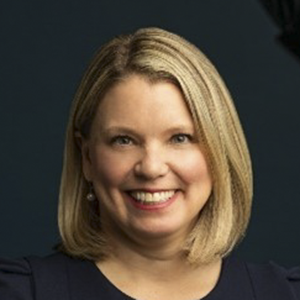
Jessica Schulken moved to Washington from Kentucky in 1999 and began her career as a Presidential Management intern at the National Institutes of Health. In 2001, she joined the staff of the Senate Appropriations Committee as a professional staff member on the Agriculture Subcommittee, where she focused on funding the research, conservation, food safety, and domestic nutrition accounts at USDA, as well as FDA. She was promoted to staff director of the subcommittee in 2012 and, in that role, was responsible for managing the policy and funding priorities for the entire bill, working with all Senate offices on their appropriations priorities for USDA and FDA, as well as negotiating with the House of Representatives during annual conference negotiations. During her tenure on Capitol Hill, she worked for Sens. Kohl, Pryor, Merkley, Byrd, Inouye, Mikulski, and Leahy. Along with routine appropriations bills, she also drafted and negotiated numerous supplemental funding bills. She joined The Russell Group in 2018, providing government relations and advocacy services for food- and agriculture-related clients. She lives with her husband, Chad, and their children in Falls Church, Virginia.
Wednesday, October 23, 2024, Noon–1:00 PM (CT)
Issues Confronting Approved Insurance Providers and the Legal Impacts
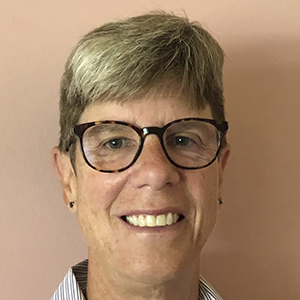
Kimberley Arrigo worked in the Office of the General Counsel at the U.S. Department of Agriculture from September 1991 through December 2018. She served as counsel to the Federal Crop Insurance Corporation and Risk Management Agency (collectively “RMA”) from March 1993 through December 2018. From January 2019 to present, she has worked as a consultant for Arrigo Risk Consulting PLLC on a variety of crop insurance issues with clients ranging from agents, approved insurance providers, private developers of crop insurance policies, and producers. She has provided expert testimony in a variety of crop insurance disputes, representing agents, producers, and approved insurance providers.
.
Thursday, August 29, 2024, 11:00 AM–Noon (CT)
What’s New with Genetically Engineered Microbes for Use in Agriculture: A Regulatory Update
The 2022 Executive Order on the Bioeconomy has spurred action from U.S. regulatory agencies to clarify their jurisdictions for genetically engineered microbes, including those intended for use in agriculture. We’ll provide an update on those regulatory efforts, the kinds of products at issue, and implications for agriculture.

Karen Carr counsels, advocates, and litigates on behalf of food and agriculture companies and industry groups, with a focus on agricultural technology, food, biotechnology, pesticides, and other chemical substances and environmental law. She co-leads ArentFox Schiff’s AgTech industry group. She has experience in litigation and regulatory counseling, strategy, and advocacy, with a primary focus on products regulated by the United States Department of Agriculture (USDA), Environmental Protection Agency (EPA), and Food and Drug Administration (FDA). Karen advises on pathways to commercialization for new products and technologies, advertising and labeling, testing and reporting, data use and compensation disputes, and litigation relating to product approvals. She has specific expertise with the Plant Protection Act, the National Bioengineered Food Disclosure Standard, the National Organic Program, the Federal Insecticide, Fungicide, and Rodenticide Act (FIFRA), the Toxic Substances Control Act (TSCA), the National Environmental Policy Act (NEPA), the Endangered Species Act (ESA), the Federal Food, Drug, and Cosmetic Act (FFDCA), and the Administrative Procedure Act.

Rebecca Foreman focuses on regulatory compliance and complex litigation matters, primarily in the biotechnology and agricultural technology space. She has specific expertise in regulatory counseling and litigation on matters arising under the Administrative Procedure Act, the National Environmental Policy Act (NEPA), the Endangered Species Act (ESA), the Federal Food, Drug, and Cosmetic Act (FFDCA), the Plant Protection Act (PPA), and the Federal Insecticide, Fungicide, and Rodenticide Act (FIFRA). She also has litigation experience in a wide range of subjects, including defamation, health care reimbursement, and government investigations under the False Claims Act.
.
Wednesday, July 31, 2024, 12:00–1:00 PM (CT)
Bankruptcy Update: Brushing up on Chapter 12 and the Code
This presentation will talk about the latest surges in bankruptcy, important case law and Code updates, and where Chapter 12 is being filed and how it is being used. It will also discuss whether there is a stigma around Chapter 12 cases and how the new laws pertaining to small-business bankruptcies can and should change the landscape for Chapter 12.
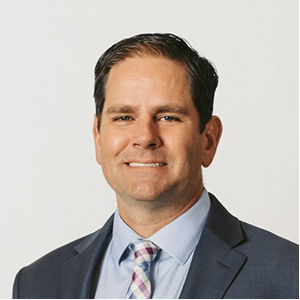
Scott Brown has been practicing law for nearly 24 years. He does all things agriculture in the four states in which he is licensed – Arizona, Colorado, Montana and New Mexico.
Please note:
- This CLE webinar is offered to current, dues-paid AALA members only as a membership benefit.
- This program is being offered for CLE credit in each attendee’s jurisdiction.
- The CLE reporting will not occur until after the program.
- Pre-registration and active participation during the webinar are required to receive CLE credit.
- AALA will do its best to secure CLE credit for all members who attend, but it is possible that some states may not approve the webinar.
- CLE credit will not be offered to those who only watch the recorded version provided afterward on the AALA Member Site.
.
Thursday, June 20, 2024, 12:00–1:00 PM (CT)
Negotiating and Securing Carbon Credits on Farmland
This presentation will discuss different types of carbon products that may be available and how they are intended to be used. The presentation also will discuss how these types of products can be used for inventory accounting and key contractual issues.

Zev Simpser has a broad-ranging energy and carbon practice. In his energy practice, Zev counsels utilities and other participants in the electric and gas industries on numerous regulatory matters and key regulated transactions. In his carbon practice, Zev focuses on purchasing and sourcing for Scope 2 compliance initiatives, as well as Scope 3 and Scope 1 product development and marketing within the agriculture industry, focusing on dairy.
.
Wednesday, May 22, 2024, 11:00 AM–12:00 PM (CT)
The Thorny Rose: Federal H-2A Program Compliance & Policy Implications
The federal H-2A program permits agricultural employers who cannot fill critical seasonal labor positions with U.S. workers to hire foreign workers to temporarily perform agricultural work. But participation in the program requires a commitment to compliance as there is likely no employment relationship more heavily regulated than that between an employer and an H-2A worker. As a result of this heavy regulation, employers often seek congressional intervention to streamline the bureaucracy and make the program more affordable. This program will highlight many of the compliance obligations, including best practices for avoiding costly violations, and whether there is any hope for reform.
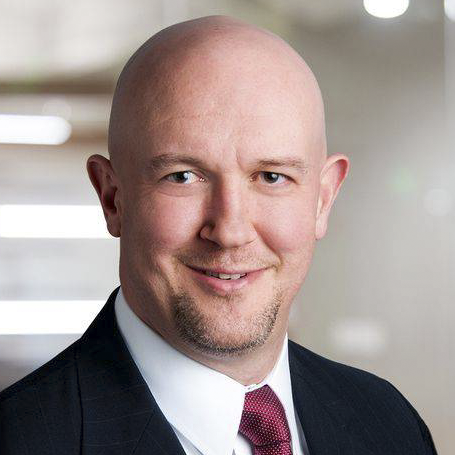
Joshua Viau counsels and defends many agricultural employers in connection with the Fair Labor Standards Act (FLSA) the Migrant and Seasonal Agricultural Worker Protection Act (MSPA), the H-2A temporary foreign agricultural worker program, and other federal and state employment and discrimination laws. His work for employer clients includes defending claims and advising employers on day to day issues arising under state and federal statutes such as Title VII, the Family and Medical Leave Act (FMLA), the Americans with Disabilities Act (ADA), the Age Discrimination in Employment Act (ADEA), and the National Labor Relations Act (NLRA). Josh works with a variety of national and local clients including employers in agriculture. Josh graduated from the Emory University School of Law and he is the former Chair of the Labor and Employment Law Section of the Georgia State Bar. Josh has been selected to the Best Lawyers in America since 2015 and was recognized as a Georgia Super Lawyer since 2015 and as a Georgia Super Lawyer – Rising Star from 2006 through 2014.

Kristi Boswell focuses her regulatory and policy practice on advising farm and food clients on issues that impact food production, manufacturing, and retail sale. This includes compliance with organic standards, workforce needs, immigration, farm safety net programs, risk management, conservation, rural development, and food and nutrition programs. Whether advising farmers, trade associations, cooperatives, food processors or grocers, Kristi’s enterprise-wide USDA experience gives her the unique ability to effectively provide regulatory compliance counsel and identify opportunities to actively engage policy makers for regulatory or legislative improvements with an eye for agency process. Before joining Alston & Bird, Kristi served as a senior advisor to the Secretary of the U.S. Department of Agriculture, where she implemented the secretary’s priorities and advised the secretary on decision-making. She was active in implementation of the 2018 Farm Bill and pandemic response using Commodity Credit Corporation authority. Kristi also held a policy role at the White House, where she served as the agricultural voice in drafting H-2A regulatory reforms and immigration legislation. Before her time in government, she served as the director of congressional relations at an agricultural trade association, where she advocated Congress for legislative change for farm members.
.
Thursday, April 25, 2024, 11:00 AM–12:00 PM (CT)
Chevron Deference on the Chopping Block: Pragmatic Pointers About How the Supreme Court May Curtail Overreach by Federal Regulatory Agencies
Administrative law experts will bring lofty subjects down to earth in a practical discussion of how regulated industries may be affected by two decisions. On January 17, 2024, the Supreme Court heard oral arguments in Loper Bright Enterprises v. Raimondo and Relentless Inc. v. Department of Commerce – cases that will determine the extent to which courts may curtail overreach by federal regulatory agencies. The cases ask the Court to overrule or narrow Chevron deference, thereby limiting how courts defer to a federal agency’s implementation of the statutes that it administers in regulating private industry. The Loper Bright and Relentless cases are likely to have major implications for any business regulated by a federal agency. The Supreme Court delved deeply into the balance of power among the three branches of government, causing a historic shift in administrative law.

Dan Jarcho represents clients in federal trial court and appellate litigation involving federal regulatory issues. Dan has litigated numerous Administrative Procedure Act challenges to federal agency actions, including cases involving the U.S. Food and Drug Administration, Departments of Agriculture, Health and Human Services, Defense, Treasury, and Interior, and U.S. Customs and Border Protection. He has defended clients in a wide variety of investigations and enforcement actions initiated by federal agencies and the U.S. Department of Justice. He is recognized by The Best Lawyers in America© in FDA Law and as a leading practitioner for life sciences in Who’s Who Legal. Dan worked as a trial attorney in the DOJ Civil Division’s Office of Consumer Litigation, representing the FDA in federal civil and criminal litigation. He also served as a special assistant U.S. attorney in the Criminal Division of the U.S. Attorney’s Office for the Eastern District of New York. The Legal Aid Society of D.C. honored him with the 2022 Servant of Justice Award for his dedication and achievement in ensuring equal access to justice.
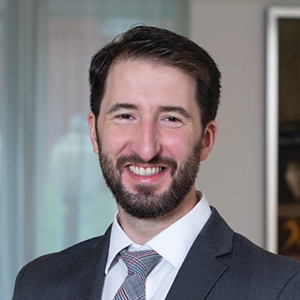
Christopher J. (“CJ”) Frisina is a senior associate in the Health Care Group at Alston & Bird and focuses his practice on health care fraud, waste, and abuse as well as compliance matters, including the Anti-Kickback Statute, the Stark Law, Civil Monetary Penalties, and the False Claims Act. CJ has advised a variety of health care providers and suppliers, including hospital systems, retail and specialty pharmacies, long-term care and senior living facilities, and clinical laboratories. He has represented his clients in criminal, civil, and administrative investigations and routinely assists clients in responding to government inquiries, including from the Department of Justice, the U.S. Department of Health and Human Services (HHS), the HHS Office of Inspector General, and the Office of Personnel Management. Before joining Alston & Bird, CJ practiced at a boutique Washington, D.C. law firm focused on federal grant funding. This experience has allowed CJ to assist health care providers and suppliers with their receipt, use, and reporting of assistance received from the Provider Relief Fund (PRF) throughout the COVID-19 pandemic. CJ also served as a procurement analyst for the HHS Office of Recipient Integrity, focusing solely on suspension and debarment matters. Super Lawyers named CJ to its Rising Stars list for health care law for 2021-2023. He is certified in health care compliance (CHC) by the Health Care Compliance Association.
Please note:
- This CLE webinar is offered to current, dues-paid AALA members only as a membership benefit.
- This program is being offered for CLE credit in each attendee’s jurisdiction.
- The CLE reporting will not occur until after the program.
- Pre-registration and active participation during the webinar are required to receive CLE credit.
- AALA will do its best to secure CLE credit for all members who attend, but it is possible that some states may not approve the webinar.
- CLE credit will not be offered to those who only watch the recorded version provided afterward on the AALA Member Site.
.
Wednesday, April 3, 2024, 12:00–1:00 PM (CT)
Water’s Uncertain Future
An overview of the current water challenges facing agriculture, with emphasis on depleting aquifers (for example, Ogallala) and drought-stricken rivers (for example, Colorado River). Time will be spent discussing policy changes and potential legal solutions, along with a primer on water law generally.
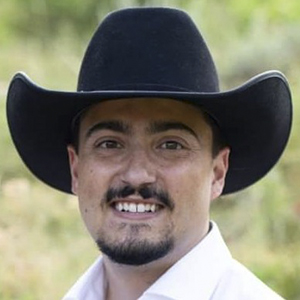
Gage Zobell helps clients acquire, develop, and operate their agricultural, natural resource, and renewable energy projects. He focuses primarily on natural resource, agricultural, and renewable energy development. He regularly assists oil and gas, mining, renewable energy, and agricultural clients with acquisition and divestiture, project development, permitting, and operating their projects. Gage enjoys partnering with his clients from the onset of pre-project planning and design, through community outreach and land-use planning, to project development and permitting, and into end-of-life planning and divestiture. He regularly reviews project development plans, surveys, and title insurance commitments, and assists with local land-use planning and title review, due diligence, and curative. He assists in project development by helping clients navigate, among other issues, NHPA Section 106 consultations, BLM and USFS land access and approvals, and coordinating land use permitting with state and local agencies. In addition, Gage maintains an active water law practice throughout the Intermountain West. He assists oil & gas, mining, agricultural, and renewable energy companies in due diligence, acquiring, permitting, and defending water assets. His varied water law practice includes permitting saltwater disposal wells, defending water rights through basin adjudications, and representing clients before state agencies in change of use applications. He also regularly assists clients in acquiring and divesting of water assets through negotiating and drafting water supply agreements, municipal water contracts, water leases, options, and purchase and sale agreements.
.
Thursday, February 29, 2024, 12:00–1:00 PM (CT)
How California’s Sweeping New Climate and Carbon Disclosure Law May Impact Your Business
California recently enacted three sweeping and unprecedented laws that require potentially in-depth disclosures related to greenhouse emissions, climate, carbon neutrality, and carbon offsets. Two of the new laws require large companies in virtually any industry doing business in California to make annual disclosures about their direct and indirect greenhouse gas emissions (S.B. 253) and the financial risks they face as a result of climate change (S.B. 261). The third new law involves more disclosure obligations on companies that either sell carbon offsets in California or make claims about achieving “net zero emissions” or carbon neutrality (A.B. 1305). Join us for a discussion of the “who, what, and when” of these new laws, including who will be directly and indirectly impacted and how – and steps you can take to prepare for compliance.
-
- Megan Houdeshel, Regulatory Affairs Practice Group Leader, Dorsey
- Kayla Race, Associate, Regulatory Affairs Group, Dorsey

Megan Houdeshel is the Practice Group Leader for Dorsey’s Regulatory Affairs Practice Group where she is located in the Salt Lake City Office. She has a breadth of experience assisting clients through complex environmental permitting matters under the National Environmental Policy Act, Clean Air Act, Clean Water Act, Resource Conservation and Recovery Act, and community right to know laws. This experience allows her to guide clients through project development beginning with lands or mineral rights acquisition to full operation and continued compliance. Megan actively represents mining, petroleum, chemical, energy, real estate development, and public utility interests throughout the western United States and Canada. As part of her regulatory compliance practice, Megan also assists clients with environmental aspects of real property and mining transactions including brownfields redevelopment and public lands leasing transactions.

Kayla Race is an associate in Dorsey’s Regulatory Affairs Group located in Salt Lake City. She assists clients in a variety of industries with environmental, energy, natural resources, land use, and sustainability matters. Kayla’s career as an attorney is aided by her experience shaping municipal and state climate, energy, and environmental justice policy in her work prior to law for community-based environmental non-profits in southern California and for the Massachusetts House of Representatives Committee on Global Warming and Climate Change.
Thursday, January 11, 2024, 1:00 PM (ET)
Can Right to Farm Laws Protect Agricultural Operations from Lawsuits in the Era of Environmental Justice?
Environmental Justice (EJ) is not just a popular buzz word used by non-profits to promote tougher environmental laws. Rather, it is one of the factors that EPA and states will consider when granting or denying environmental permits or permit modifications, bringing enforcement actions, and shutting down facilities. It is also a factor that will be used by non-profits and community organizers to require governmental agencies like EPA bring enforcement actions against current permit holders. The agricultural community has been somewhat protected from complaints brought by surrounding community members or non-profits by passing Right to Farm laws. Will this continue in the new EJ Era? In this webinar, Jessie King will discuss the interplay between EJ policies and Right to Farm laws and what this means for agricultural facilities located in communities that are labeled as disadvantaged.
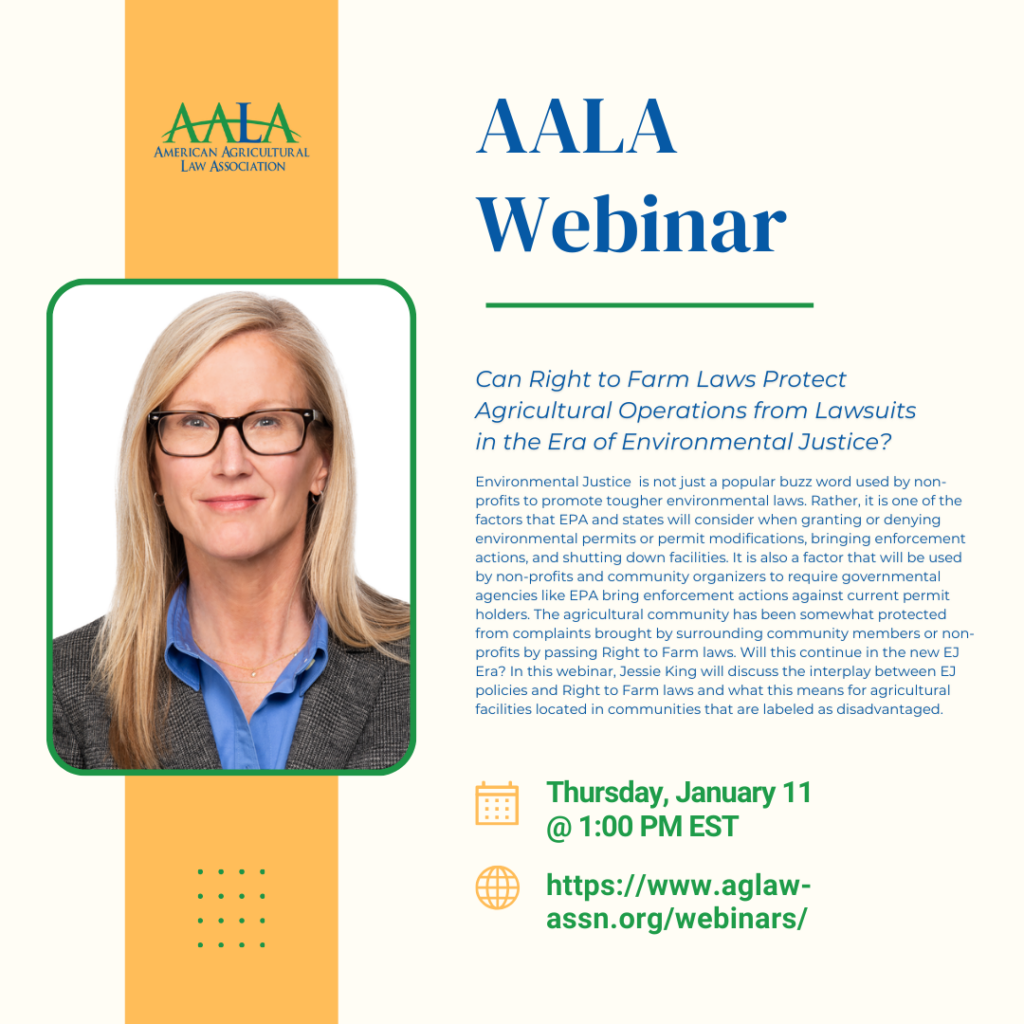
Jessica “Jessie” King is a partner of Williams Mullen law firm and focuses her practice on environmental legal issues. A former chief attorney for the Environmental Quality Control Division of the South Carolina Department of Health and Environmental Control, she has substantial experience helping farmers, companies and individuals obtain environmental permits, respond to notices of violation and environmental lawsuits, understand regulatory requirements, perform due diligence and negotiate business transactions. Her experience over the last 27 years spans matters affecting land, air and water including solid waste, hazardous waste, emerging contaminants, Superfund sites, air emissions, stormwater and wastewater, wetlands, and hazardous and toxic substance reporting.
Jessie has been recognized as a leading environmental attorney by Chambers USA (2017-present), named among Columbia Business Monthly’s “Legal Elite” (2013-present) and listed in The Best Lawyers in America© for Environmental Law and Litigation – Environmental (2018-present). In The Best Lawyers in America©, she was named the Columbia “Lawyer of the Year” for Litigation – Environmental (2020, 2022).
Jessie currently serves as past-president of the Carolinas Air Pollution Control Association (CAPCA) and board member of South Carolina Solid Waste Association of North America (SWANA) – Palmetto Chapter. She is also a member of Commercial Real Estate Women (CREW) – Midlands chapter, South Carolina Poultry Federation (SCPF), South Carolina Aggregates Association (SCAA), South Carolina Manufacturers Alliance (SCMA), the North Carolina Manufacturers Alliance (NCMA) and the National Waste and Recycling Association (NWRA) – Southeast Chapter. She earned her Juris Doctor from the University of South Carolina and her Bachelor of Arts from Roanoke College.
Thursday, September 14, 2023, 12:00 PM (ET)
Agriculture and Proposition 65: Risks and Implications in California and Beyond
California’s Proposition 65 requires businesses to provide warnings about exposures to over 900 chemicals that may cause cancer, birth defects, or other reproductive harm. With strong financial incentives for private enforcers to pursue claims, many in the regulated community view Proposition 65 as encouraging frivolous “gotcha” lawsuits. The practical reach and impact of Proposition 65 for the agriculture industry is far beyond the borders of California. This CLE provides an overview of Proposition 65 as it affects the agriculture industry, recent developments and enforcement trends, and considerations for addressing this far-reaching law from both a legal and technical perspective.
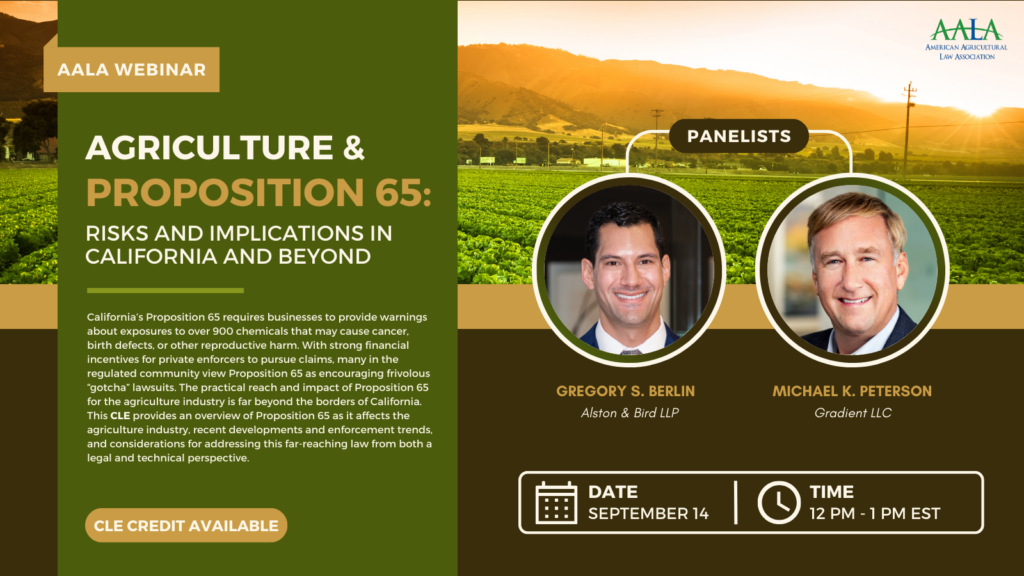
Gregory S. Berlin represents well-known corporations, including multinational oil and gas companies, the world’s largest retail corporations, and food and drink processing conglomerates in litigation involving the environment, natural resources, and consumer products. He proactively works with companies in highly regulated industries to identify and manage their legal risks and develop creative litigation strategies. Greg has expertise with litigation related to toxic torts, climate change, PFAS, Superfund/cost recovery, citizen suits, and California’s unique labeling law, Proposition 65. He also represents companies in litigation involving major energy, infrastructure, and land use development projects. Greg earned his J.D., cum laude, from the University of California, Hastings College of Law, with a certificate in environmental law. He served as the executive symposium editor of the Hastings Law Journal and a judicial extern to the Hon. Edward M. Chen of the U.S. District Court for the Northern District of California.
Michael K. Peterson, M.E.M., DABT is a principal at Gradient with more than 25 years of experience specializing in human health risk assessment of cancer and non-cancer endpoints, critical analysis of human and animal toxicology and epidemiology studies, and multimedia assessment of exposure to chemicals. He has worked on Proposition 65 projects for over a decade, both advising companies proactively on compliance as well as providing testimony as an expert witness in litigation proceedings.
Tuesday, July 25, 2023, 12:00 PM (ET)
Understanding the Basics of the Farm Credit System
This webinar will offer an introduction to the structure, funding, and operations of the Farm Credit System, including some of its unique aspects and practical applications for attorneys who work in the area of agricultural lending.
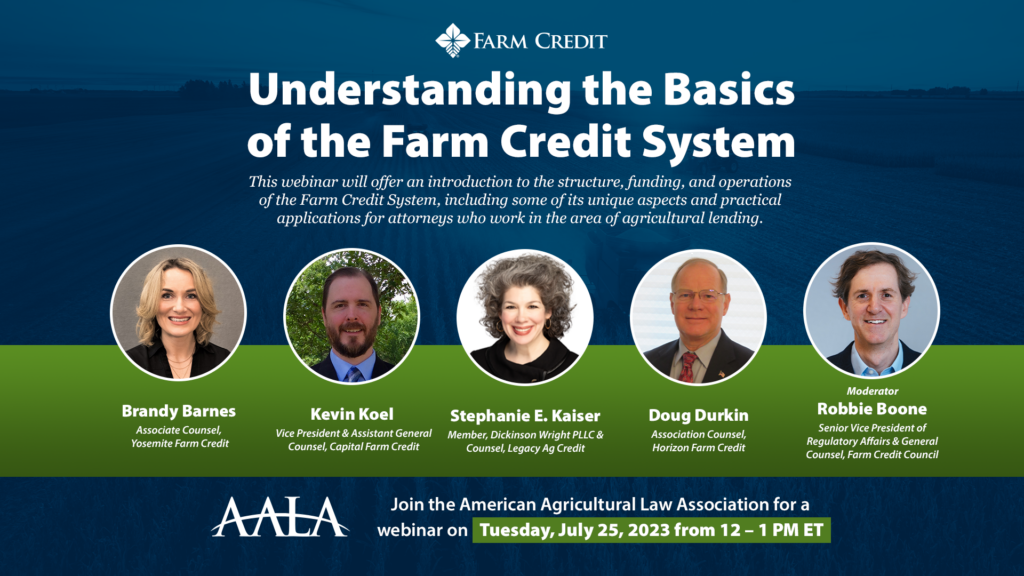
Brandy Barnes serves as Associate General Counsel of Yosemite Farm Credit, ACA and its subsidiaries.
Kevin M. Koel is Vice President & Assistant General Counsel at Capital Farm Credit, ACA (CFC), a farm credit system institution located in the State of Texas. Capital Farm Credit provides loans to farmers, ranchers, rural homeowners, and agribusinesses through its 63 locations serving 192 counties across Texas. Kevin leads CFC’s retail legal services team for portfolio loans advising on loan documentation, regulatory compliance, real estate title, lien perfection, community property, litigation matters, and Texas homestead law. Before joining CFC in 2015, Kevin worked in private practice for over 8 years in the Houston area, his practice covering oil & gas, commercial and residential real estate, collection, bankruptcy, and estate planning. Kevin holds a J.D. from New York Law School, a B.A. from the University of Colorado (Boulder), and an A.S. from Red Rocks Community College. He is admitted to practice law in Colorado, Texas, and the Southern District of Texas. Kevin, and his wife, Claire, and their daughter reside in College Station, Texas.
Stephanie E. Kaiser, a litigator based in Dickinson Wright’s Austin office, provides guidance to her clients on a wide variety of business and legal challenges. Her detail-oriented yet practical approach to identifying and addressing enterprise risk makes her a particularly skilled problem solver, both in and out of the courtroom. Through her representation of clients in bet-the-company or high-profile cases, Stephanie has built a reputation for successfully handling matters ranging from fraud, breach of contract, and breach of fiduciary duties, wrongful death, workplace disputes and personnel matters to unfair competition, intellectual property infringement cases, Lanham Act allegations, and lease disputes. Though her practice is focused largely on litigation, Stephanie’s experience encompasses transactional, real estate, corporate governance, administrative/regulatory, healthcare, and insurance matters. Her clients, which include businesses, corporate executives, and boards of directors across multiple industries, including financial services, general and tower construction, telecommunications, healthcare, security systems and equipment, real estate, and energy, appreciate her sharp eye and wide-ranging perspective. Stephanie has gained particular experience representing creditors in a variety of troubled commercial loan and consumer finance disputes. She has handled matters related to the Fair Credit Reporting Act, the Fair Debt Collection Practices Act, and Equal Credit Opportunity Act, as well as those related to consumer protection laws, the Dodd–Frank Act, and potential regulatory enforcement actions.
Douglas S. Durkin is Association Counsel at Horizon Farm Credit, ACA (Horizon), a farm credit system institution whose territory includes the entirety of Delaware and Pennsylvania, and portions of Maryland, Virginia, and West Virginia. Horizon Farm Credit provides loans to farmers, ranchers, rural homeowners, and agribusinesses through its 25 locations, and also serves orchardists throughout those same five states plus all of Puerto Rico and the District of Columbia. Doug is Horizon’s sole in-house attorney responsible for the majority of Horizon’s legal needs. Before joining Horizon’s predecessor, MidAtlantic, in 2021, Doug served as Associate General Counsel for a federal savings bank with a nationwide mortgage loan business for over 20 years. Prior to his finance experience, Doug served for 9 years as the politically appointed County Attorney in Doña Ana County, New Mexico; Culpeper County, Virginia; and St. Mary’s County, Maryland. Doug commenced his legal career in 1981 as a litigator in private practice for 11 years, first in suburban Baltimore, and then in the Breckenridge and Vail area of Colorado, where his practice included litigation involving construction, mechanic’s liens, commercial and residential real estate, collection, foreclosure, and representation of savings and loan associations and banks. Doug holds a J.D. from the University of Baltimore School of Law, and a B.A. in History from the University of Colorado at Boulder. He is currently admitted to practice law in Maryland, Virginia, Colorado (inactive), New Mexico (inactive), the US Court of Appeals for the Fourth Circuit, and the US District Court and Bankruptcy Court for the Western District of Virginia. He was previously admitted to the US District Courts for the Districts of Colorado, Maryland, and New Mexico; and the US Bankruptcy Court of Maryland. Further, he was previously admitted pro hac vice for cases in California, Texas, and the US District Court for the District of Connecticut. Doug, and his wife, Norma, reside in Baltimore County, Maryland.
Robbie Boone is Senior Vice President & General Counsel at the Farm Credit Council (FCC), the national trade association representing the institutions of the Farm Credit System before the U.S. Congress, the Administration and various federal agencies. Robbie leads the FCC’s efforts to achieve a regulatory environment favorable to Farm Credit’s mission to support rural communities and agriculture. He is also responsible for conducting the trade association’s legal affairs, including advising the FCC Board of Directors on a variety of related matters. Robbie previously served on the FCC’s government affairs team for over a decade. Before joining the Council in 2009, Robbie worked on Capitol Hill for five and a half years –– in a legislative capacity for a Member of the U.S. Senate and the House of Representatives. Prior to that, he was an Assistant Vice President/Analyst for U.S. Trust. Robbie holds a J.D. and M.B.A. from the University of Miami (FL). He received his B.A. from Wake Forest University. He is admitted to practice in North Carolina, District of Columbia, and the U.S. Supreme Court. Robbie, and his wife, Sarah, and their three children reside in Washington, D.C.
Wednesday, May 31, 2023, 12:00 PM (CT)
Grain Elevators & Agricultural Finance
A panel of experts will tackle the topic of agricultural liens (current cases and issues, as well as possible risk mitigation from various standpoints and interests).

Doug Spanier is General Counsel at the Minnesota Department of Agriculture. He has been at the Department for over 25 years, starting off as a law clerk, then holding different positions such as contracts coordinator, assistant director of marketing, as well as a policy analyst. He also clerked for Judge Bruce Gross of the 5th Judicial District in Windom, Minnesota. He attended St. Johns University in Collegeville, MN, as well as William Mitchell College of Law in St. Paul, MN, now called Mitchell Hamline School of Law. When he isn’t working, he is busy dealing with his 4 boys who have now hit their teenage years.
Michael D. Fielding is a partner in the Food Systems business unit of Husch Blackwell LLP in Kansas City, Missouri where he helps clients successfully resolve difficult problems involving distressed agricultural and commercial loans. He currently serves as President of the Ag Law Section of the Kansas Bar Association. He has published more than 40 articles on a variety of legal issues and regularly presents on successfully resolving debt with insolvent and bankrupt debtors. Listed in the 2021, 2022 and 2023 editions of Best Lawyers in America, he has been named multiple times as a “Best of the Bar” honoree by the Kansas City Business Journal, and he was recognized in 2019 and 2022 by IFLR 1000 as being Highly Regarded in Restructuring and Insolvency (Missouri). He is licensed in Missouri, Kansas, Iowa, Nebraska, Utah and numerous federal courts and is board certified in Business Bankruptcy by the American Board of Certification.
Jeff Peterson is a Lathrop GPM partner that focuses his practice on commercial transactions, creditor’s rights, bankruptcy, and agricultural and food law. He is a frequent speaker on agriculture and finance topics and is a former chair of the American Bar Association Agricultural and Agribusiness Financing Subcommittee. In addition, Jeff is the current President of the American Agriculture Law Association, a co-editor of the Bankruptcy Practice in Minnesota Deskbook which is published by the Minnesota State Bar Association, and a fellow in the American College of Commercial Finance Lawyers (ACCFL), a professional association of distinguished commercial finance attorneys. Jeff has a background in agriculture and agribusiness, working for Country Hedging, Inc. (the commodity trading subsidiary of CHS) as a commodity branch manager and market analyst in Kansas City, advising clients on commodity hedging strategies and trading agricultural futures and options for grain and livestock producers and grain cooperatives in South Dakota, Nebraska, Kansas, and Colorado.
Tuesday, April 18, 2023, 12:00 PM (CT)
Cannabis & Hemp Derivatives in Tourism & Hospitality: Opportunities & Obstacles
From Amsterdam to California to Thailand, the cannabis hospitality and tourism business is a rapidly expanding industry that adds a major boost to revenues for those jurisdictions in which it is legal. Join us for this panel discussion on industry-related legal aspects of cannabis hospitality and tourism. Learn about guidelines for on-site consumption, use and sale of cannabis, and related products such as cannabis-infused massages, edibles, coffee shops, and haute cuisine – and how regulations can help or hurt cannabis tourism. Of course, no panel is complete without predictions. So, we will provide predictions for the direction of this industry – including legal hurdles preventing expansion.

Pamela Epstein is the Chief Licensing & Regulatory Officer with one of California’s pioneering vertically integrated cannabis and hemp operators, Eden Enterprises, Inc. She previously was the Founder of Green Wise Companies – Green Wise Legal & Green Wise Consulting, California’s premiere full-service cannabis consulting company and law firm, providing a range of legal, consulting, business development and application permitting services to every facet of the cannabis industry. Her diverse background, inclusive of legal, land use, and environmental work, placed her in a unique position to lead and advise her clients and the cannabis community in general. Epstein has become known as a fearless advocate for local cannabis businesses along the supply chain, guiding them through the ever-changing legal and regulatory landscape. Recognized as an expert in her field, she serves as a featured speaker, providing energetic and compelling commentary focused on topics such as land use and zoning, regulatory compliance and environmental issues. Her mission is to advance industry and foster stability and growth. She is a trusted resource for local governments looking to effectively regulate cannabis within their jurisdictions and has served as the Special City Attorney for the City of Hollister regarding their Commercial Cannabis Ordinance. Along with providing her clients with exceptional service she is proud to serve as current President of the California Cannabis Industry Association’s (“CCIA”) Board of Directors, a member of the In-house Counsel Subcommittee of the International Cannabis Bar Association (“INCBA”) and Member of American Trade Association for Cannabis and Hemp (“ATACH”) Chairing the Committee on Standards.
Susan Burns is a business lawyer who specializes in guiding businesses in growth mode, strategically using legal to meet their needs. Her practice serves various industries from cannabis processors, manufacturers and retailers to innovative industries in the sustainable food business. She also works with more established businesses such as psychotherapy and health-related clinics, microbiology consultants, and tech startups. Burns functions as an on-call business partner to her clients. As general counsel and strategic business advisor she finds creative solutions to unexpected issues—including partnering with trusted professionals from her extensive network when necessary. She enjoys interacting with socially engaged clients and audiences. Burns’ career has focused on “doing well by doing good,” and one of her guiding principles is “a bit of world-bettering is always encouraged.” She thrives on working with businesses that are making a buck and a positive impact on society. Before starting her own law firm, her work ranged from general practice with small law firms to large-scale litigation with the largest Minnesota firm. Burns is listed among the Top 200 Global Cannabis Lawyers and holds leadership roles in the American Bar Association’s Section of International Law, serving as Communications Officer and as Co-Chair of the Food, Ag, and Cannabis Committee. She is also an active member of the International Cannabis Bar Association and board member of the Minnesota Organic Advisory Task Force in addition to serving on the Minnesota State Bar Association Rural and Agricultural Law Council. A Minnesota native, Burns earned her J.D. from Hamline University School of Law (now Mitchell-Hamline) and her B.A. from the College of St. Benedict. She holds an LL.M. in Food and Agriculture Law from the University of Arkansas. She is the founding partner of the law firm S Burns Legal PLLC.
.
Wednesday, March 29, 2023, 1:00 PM (ET)
2023 Farm Bill Reauthorization
As Capitol Hill gears up for the 2023 farm bill, hear the latest from a panel of experts about what to expect, challenges that lie ahead, key policy debates worth watching, and the best way to engage in the discussion.
Anne MacMillan co-chairs Invariant’s agriculture, trade, and transportation practice, leveraging over 15 years of experience across the federal government and private sector on behalf of industry leaders and trade associations. She served as senior advisor and deputy chief of staff to U.S. Department of Agriculture (USDA) Secretary Tom Vilsack for several years, where she developed and implemented the agency’s regulatory agenda and managed the Secretary’s policy team. She was also senior policy advisor to Speaker Nancy Pelosi (D-CA) during her first term as Speaker, where she led agriculture, veterans, small business, and government oversight policy for the House Democratic Caucus, as well as coordinated outreach to the New Democrat Coalition and Blue Dogs Coalition. She spent most of her time on Capitol Hill with Rep. Dennis Cardoza (D-CA), where she worked on the 2008 Farm Bill and Endangered Species Act reform. In the private sector, Anne was director of government affairs for The Wonderful Company, a multi-billion-dollar farming and consumer packaged goods company headquartered in California. She is a graduate of the University of California, San Diego, and received her J.D. from The George Washington University Law School.
Andrew Walmsley joined the American Farm Bureau Federation in 2011 as Director, Congressional Relations. In addition to leading the farm policy team, Andrew is charged with managing energy, climate, transportation, and biotechnology issues for Farm Bureau. His work has included regulatory relief for farmers and ranchers, along with securing Farm Bureau priorities in multiple pieces of legislation that were eventually enacted into law. Because of this work, he has been named a Top Lobbyist by The Hill. He has held multiple leadership roles around Washington D.C. He helped establish and serve as chairman of the Farmers for a Sustainable Future Coalition, co-chairs the Agricultural Transportation Working Group, and is a founding member of the Food and Agriculture Climate Alliance. He previously served as chairman of the Agricultural Biotech Alliance, as a steering committee member of the Coalition for Safe and Affordable Food, the Rail Customer Coalition, and as an advisor to the U.S. Chamber of Commerce on their Energy, Clean Air & Natural Resources Committee.
Ben Thomas is the senior policy director for agriculture at Environmental Defense Fund. He focuses on creating innovative and pragmatic solutions to address environmental risks from agriculture by working with key farm groups and policymakers across state and federal government. He has extensive experience working in both state and federal government to develop and implement policy related to food and agriculture. He understands the importance of strategic engagement with stakeholders, including farm groups, to create programs that are effective and workable on the ground.
.
Wednesday, December 7, 2022, 12:00–1:30 PM (CT)
Farm Bill 101
Given the expiration of the current Farm Bill on September 30, 2023, this webinar will give an overview and history of the Farm Bill – highlighting why the Farm Bill is important, reviewing what the different titles of the Farm Bill cover, and examining different stakeholder positions. Speakers will share their insights and perspectives as Farm Bill “veterans” on the history, dynamics, opportunities, and challenges of the next one.
-
- Chris Adamo, Vice President of Public Affairs and Regenerative Agriculture Policy, Danone, and former Staff Director, Senate Committee on Agriculture, Nutrition & Forestry
- Fred Clark, former Chief Counsel, Senate Committee on Agriculture, Nutrition & Forestry
- James Glueck, Vice President, Torrey Advisory Group, and former Staff Director, Senate Committee on Agriculture, Nutrition & Forestry
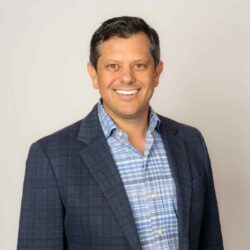
Chris Adamo is Vice President at Danone North America for public affairs & regenerative agriculture policy, assisting one of the world’s largest B Corps with strengthening the role of business in driving social and environmental good for all. Chris helps Danone build strategies for implementing regenerative agriculture with farming partners across its supply chain as it strives to measure impact toward climate change, water, and farmer well-being. Prior to joining Danone, Chris spent over a decade at the highest levels of the federal government working on issues related to agriculture, environment and climate change. He served as chief of staff for the White House Council on Environmental Quality from 2015 until the end of the Administration in 2017, where he helped lead the President’s agenda on climate change and conservation. From 2011-2105, he led the U.S. Senate Committee on Agriculture, Nutrition and Forestry as its staff director, including the negotiations and drafting of the 2014 Farm Bill, which included new opportunities for landscape-scale conservation and unprecedented investments in healthy foods. Chris began his Senate career in 2005 and was a legislative counsel in U.S. Senator Debbie Stabenow’s office starting in 2007, where he worked on priorities such as the 2007 energy bill, the 2008 farm bill, the 2009-2010 energy and climate bill efforts, as well as various other environmental initiatives. Chris graduated with a degree in economics and business from Kalamazoo College and a law degree from Vermont Law School.

Fred Clark has been directly engaged in drafting each of the past seven Farm Bills, dating back to 1985. Most recently Fred served as Majority Counsel to the Senate Agriculture Committee (for Republican Chairman Pat Roberts) during the drafting of the 2018 Farm Bill, where Fred served as principal drafter of statutory language for the Commodities, Trade, Credit, Rural Development, Research, and Crop Insurance titles. Prior to his Senate service Fred served for 20 years as counsel in several law and lobbying firms, where he focused on agriculture, trade, agricultural research, and finance issues, including drafting major provisions of the 1996, 2002, 2008 and 2014 Farm Bills. Fred served for 10 years as staff in the U.S. House of Representatives, including eight years on the Agriculture Committee serving Democratic Chairman Kika de la Garza. In that role Fred participated extensively in the writing of both the 1985 and 1990 farm bills. Born and raised in San Jose, California, Fred served as FFA State Treasurer before earning a B.S. in Agricultural Business Management from Cal Poly San Luis Obispo and a Juris Doctor from Georgetown University Law Center. Fred retired from his role as Chief Counsel to the Senate Agriculture Committee in February 2022, and has since enjoyed safaris in Tanzania, hiking in the Grand Canyon, and ballroom dancing lessons with Rika, his wife of more than 30 years.
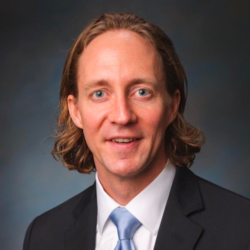
As vice president at Torrey Advisory Group, James Glueck provides analysis, strategic advice, and representation to clients on a range of agriculture and food policy issues. James served as staff director for the Senate Agriculture, Nutrition, and Forestry Committee from 2017 until 2021 under the leadership of Chairman Pat Roberts. In the past, Glueck served as deputy staff director and policy director for Senate Agriculture, Nutrition, and Forestry Committee Ranking Member Thad Cochran as well as a legislative assistant for Senator Mike Johanns. His legislative experience includes work on the 2014 and 2018 Farm Bills as well as biotech disclosure and pesticide registration laws. Prior to coming to Capitol Hill, James worked for Bunge North America, an integrated agribusiness and food ingredient company. Previously, he served at the U.S. Department of Agriculture, including roles as a senior advisor to the Under Secretary for Farm and Foreign Agricultural Services–during the World Trade Organization (WTO) Doha round negotiations and the 2008 Farm Bill, congressional liaison, deputy White House liaison, deputy director of intergovernmental affairs, and confidential assistant in the Farm Service Agency. James received an undergraduate degree in agricultural development from Texas A&M University and a graduate certificate in Advanced International Affairs from the George Bush School of Government and Public Service.
.
Wednesday, September 7, 2022, 12:00–1:30 PM (CT)
Agricultural Insolvency: What’s Different?
Agriculture is unique, and insolvency is, too. In a presentation by Restructuring and Insolvency lawyers at K&L Gates, they cover aspects of insolvency that are unique to food production and agriculture.
Brandy Sargent, Partner, K&L Gates
Margaret Westbrook, Partner, K&L Gates
This webinar was offered only to AALA members for continuing legal education credit.
Please be sure to note the following: CLE credit cannot be offered to those who only watch the recorded version after the webinar.
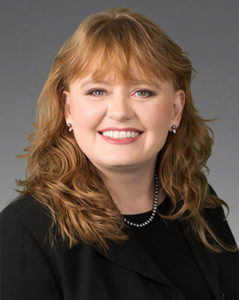
Brandy Sargent represents debtors, lenders, vendors, purchasers, and official and unofficial committees in a variety of commercial and agricultural bankruptcy, workout, and litigation matters. Brandy has significant experience representing vendors, customers, and other contract counterparties in complex payment, performance, and contract compliance issues arising in bankruptcy and insolvency matters. She regularly advises clients regarding supply chain disruptions arising in bankruptcy and insolvency cases. In addition, she has specific experience advising clients regarding consignment agreements, purchase money security interests, and warehouse and transportation liens. In agribusiness insolvency matters, Brandy assists clients with unique issues arising under the Perishable Agricultural Commodities Act (PACA), Food Security Act (FSA), state agricultural lien statutes, and cooperative member and marketing agreements.
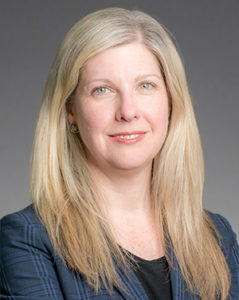
Margaret Westbrook is a partner in the Raleigh K&L Gates office and has two distinct areas of practice: restructuring and insolvency and campaign finance. Currently serving as the U.S. practice group coordinator for the restructuring and insolvency practice group within the firm, she represents and litigates for secured and unsecured creditors in restructuring and insolvency matters both in and out of the state and federal courts in North Carolina, and in other jurisdictions, including New York, Delaware, Texas and Virginia. Margaret advises transactional clients with respect to insolvency risks and debt restructuring. She represents purchasers and sellers of debt and assets from financially distressed companies in a variety of structures, including foreclosure sales, Article 9 sales and Chapter 11 Section 363 sales. She has extensive experience with agricultural cases, including Chapter 12 proceedings, and with healthcare insolvency issues both in and outside of formal insolvency proceedings. Margaret is a member of Class 32 Fellows of the American College of Bankruptcy.Margaret also advises corporations and trade associations on matters relating to the regulation of corporate political activity, including the formation and administration of state and federal political action committees, campaign finance regulations and gift laws. She formerly represented clients in the North Carolina General Assembly and currently advises clients regarding the development of political compliance programs.
.
Tuesday, August 30, 2022, at 12:00–1:30 PM (CT)
Legal Issues for Indoor Agriculture
Consumer demand for local food and food traceability has created market value for vertical, indoor, and other controlled environmental agriculture (CEA) systems in recent years, while innovations in LED lighting technology, artificial intelligence, robotics, and other innovations have spurred investment and significant growth. CEA companies face a host of unique legal issues and others that are common to traditional producers of agricultural products. This panel legal of experts will discuss working with agricultural technology companies, issues unique to CEA companies, issues they share with conventional agriculture, and opportunities for innovation in agriculture as the Farm Bill approaches.
Speakers:
Karen Ellis Carr, ArentFox Schiff
Marni Karlin, Karlin Strategic Consulting LLC
Chris Livingston, General Counsel & Corporate Secretary for Bowery Farming
Kei Nishimura, Associate General Counsel, Plenty
 Karen Carr counsels, advocates, and litigates on behalf of food and agriculture companies and industry groups, with a focus on agricultural technology, food, biotechnology, pesticides and other chemical substances, and environmental law. Karen co-leads ArentFox Schiff’s AgTech industry group.
Karen Carr counsels, advocates, and litigates on behalf of food and agriculture companies and industry groups, with a focus on agricultural technology, food, biotechnology, pesticides and other chemical substances, and environmental law. Karen co-leads ArentFox Schiff’s AgTech industry group.
Karen has experience in litigation and regulatory counseling, strategy, and advocacy, with a primary focus on products regulated by the United States Department of Agriculture (USDA), Environmental Protection Agency (EPA), and Food and Drug Administration (FDA). Karen advises on pathways to commercialization for new products and technologies, advertising and labeling, testing and reporting, data use and compensation disputes, and litigation relating to product approvals. Karen has specific expertise with the Plant Protection Act, the National Bioengineered Food Disclosure Standard, the National Organic Program, the Federal Insecticide, Fungicide, and Rodenticide Act (FIFRA), the Toxic Substances Control Act (TSCA), the National Environmental Policy Act (NEPA), the Endangered Species Act (ESA), the Federal Food, Drug, and Cosmetic Act (FFDCA), and the Administrative Procedure Act.
Marni Karlin is a recognized leader and subject matter expert passionate about creating a healthier and more sustainable food system, using advocacy, strategic planning, law, policy, and communications tools. She has over twenty years of experience in food; sustainable, organic, and controlled environment agriculture; organization management; policy; advocacy; law; and legislative and administrative process.
Her past roles include food and agriculture industry trade association general counsel and vice president of government affairs, legal policy advisor, legislative director, corporate attorney, and trained chef. She has an extensive background in project development; management of staff and boards; strategic thinking; building and leading coalitions; advocating and shaping the debate; political and corporate strategy; financial management and development; organic food and agriculture; and written and oral communication.
.
Thursday, August 4, 2022, at 11:00 AM – 12:30 PM (CT)
National Bioengineered Food Disclosure Standard – Six Month Check-In
The National Bioengineered Food Disclosure Standard (NBFDS) was implemented on January 1, 2022. This session will provide a refresher on the NBFDS and explore the current regulatory and litigation landscape surrounding the implementation of the NBFDS, including a discussion of the ongoing lawsuit challenging the NBFDS under the Administrative Procedure Act (APA).
Samuel Jockel, Senior Associate, Alston & Bird
Rachel Lowe, Partner, Alston & Bird
Brandon Neuschafer, Partner, Bryan Cave Leighton Paisner
Sam Jockel is a senior associate in the Washington, D.C. office focusing his practice on regulatory, policy, and litigation matters involving the FDA, the USDA, and the FTC related to food, beverages, cosmetics, dietary supplements, and drugs. Sam assists clients on premarket clearance, import and export issues, supply chain management, and product labeling and advertising. He helps clients navigate product recalls and respond to regulatory enforcement actions and defends clients in consumer class actions. Sam has completed training to be a Preventive Controls Qualified Individual (PCQI) for human food.
Sam previously served as a trial attorney in the USDA’s Office of the General Counsel. At the USDA, he was counsel for the implementation of the National Bioengineered (BE) Food Disclosure Standard and also represented the Agricultural Marketing Service, the Food Safety and Inspection Service, and the Animal and Plant Health Inspection Service in administrative enforcement proceedings under the Animal Welfare Act, the Packers and Stockyards Act, and the Humane Methods of Slaughter Act. Sam began his legal career as an Oak Ridge Institute for Science and Education Fellow at the FDA, where he worked on medical and food product safety and regulatory harmonization initiatives.
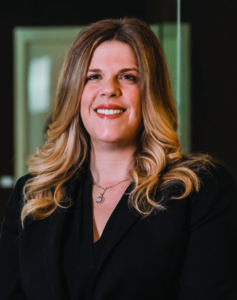 Rachel Lowe is a litigator who represents clients in a variety of industries, including the food and beverage and retail industries, in class actions and other complex commercial disputes. She is a member of Alston & Bird’s Chambers-rated Food, Beverage & Agribusiness Team and works hand-in-hand with regulatory counsel to advise industry-leading food producers, distributors, and retailers facing litigation and investigations. Rachel is also a member of the firm’s Privacy, Cyber & Data Strategy Team and counsels and defends companies facing California Consumer Privacy Act (CCPA) and other privacy-related claims. Rachel also has experience representing clients in product litigation, trademark, and employment matters.
Rachel Lowe is a litigator who represents clients in a variety of industries, including the food and beverage and retail industries, in class actions and other complex commercial disputes. She is a member of Alston & Bird’s Chambers-rated Food, Beverage & Agribusiness Team and works hand-in-hand with regulatory counsel to advise industry-leading food producers, distributors, and retailers facing litigation and investigations. Rachel is also a member of the firm’s Privacy, Cyber & Data Strategy Team and counsels and defends companies facing California Consumer Privacy Act (CCPA) and other privacy-related claims. Rachel also has experience representing clients in product litigation, trademark, and employment matters.
In 2021, Rachel was recognized as one of the “Most Influential Women Lawyers” in Los Angeles by the Los Angeles Business Journal. She was also honored by JD Supra with a 2021 “Readers’ Choice Award” for her insights and commentary on legal issues. Rachel was named a “Rising Star” by Southern California Super Lawyers magazine from 2013-2016.
During law school, she served as a judicial extern to the Honorable Stephen Reinhardt of the U.S. Court of Appeals for the Ninth Circuit. Rachel’s pro bono work includes volunteering with the Inner City Law Center and National Lawyers Guild.
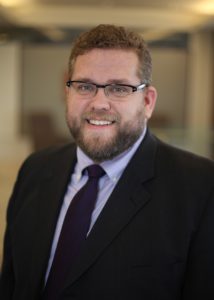 Brandon Neuschafer has done significant work relating to agriculture, food and biotechnology issues. He advises clients at all levels of food production and manufacturing, from agricultural operations to restaurants, and has experience working with regulatory agencies such as FDA and USDA. His work includes counseling clients on issues impacting ingredients, packaging, storage, facility registration, labeling, advertising, adulteration and recall. He has also assisted companies with respect to facility registrations and preparing for and responding to government inquiries and inspections. Examples of recent efforts include working with clients to understand, interpret and incorporate into their operations FDA rules designed to implement the Food Safety Modernization Act and rules regarding menu labeling, and advising clients with respect to food labeling and advertising issues such as the use of “natural” and similar claims and compliance with California’s Prop 65 requirements.
Brandon Neuschafer has done significant work relating to agriculture, food and biotechnology issues. He advises clients at all levels of food production and manufacturing, from agricultural operations to restaurants, and has experience working with regulatory agencies such as FDA and USDA. His work includes counseling clients on issues impacting ingredients, packaging, storage, facility registration, labeling, advertising, adulteration and recall. He has also assisted companies with respect to facility registrations and preparing for and responding to government inquiries and inspections. Examples of recent efforts include working with clients to understand, interpret and incorporate into their operations FDA rules designed to implement the Food Safety Modernization Act and rules regarding menu labeling, and advising clients with respect to food labeling and advertising issues such as the use of “natural” and similar claims and compliance with California’s Prop 65 requirements.
Mr. Neuschafer also regularly advises pesticide, fertilizer and agricultural chemical manufacturers and marketers on regulatory compliance and transactional issues, and has advised foreign governments on domestic and foreign agricultural issues impacting free trade agreement negotiations with the United States. He blogs about food and beverage law and policy issues at Digest, BCLP’s Food and Beverage Law Blog found at https://bclpdigest.com
.
Farmland & Succession – Challenges & Solutions for Black Farmers
This webinar features two speakers with the Land Loss Prevention Project, Mary Henderson, and Christina Rice. The speakers will explore the historical context of land loss by black farmers, the particular vulnerabilities of black-owned land, and policy and legislative efforts at the state and federal levels.
Mary Henderson, Senior Staff Attorney, Land Loss Prevention Project
Christina Rice, Senior Staff Attorney, Land Loss Prevention Project

Mary Henderson is a Senior Staff Attorney with the Land Loss Prevention Project (LLPP) in Durham, North Carolina, where since 2006 she has assisted low-resource homeowners, landowners, and farmers to retain and utilize their real property. She earned her B.A. from Brigham Young University in 1998 and her J.D. from the University of California, Los Angeles in 2004 where she was editor-in-chief of the UCLA Journal of Environmental Law and Policy. She is a member of the state bars of California and North Carolina. Ms. Henderson works across LLPP’s practice areas on matters involving heir property stabilization, consumer protection, Chapter 12 and 13 bankruptcy, farm business and succession planning, and various aspects of environmental and real property law.

Christina Rice is a Senior Staff Attorney at the Land Loss Prevention Project (LLPP), where she provides free legal assistance to financially distressed and limited resource farmers, homeowners, and landowners throughout North Carolina. Ms. Rice works across LLPP’s practice areas on matters involving heir property, foreclosure prevention, estate and farm succession planning, business entity formation, community economic development, Chapter 12 and 13 bankruptcy, and various aspects of real property law. She earned her J.D., with honors from Charlotte School of Law, her Bachelor of Science degrees with honors from the University of North Carolina at Charlotte, and her LL.M. in Agricultural and Food Law from the University of Arkansas School of Law. She is admitted to practice law in North Carolina.
.
Industry Spotlight: Perspectives From the Hemp Industry
This webinar features three leaders in the hemp industry. The speakers will provide their perspectives on the key issues facing the hemp industry, including specific insight into emerging policy topics, legal and regulatory challenges, and global trade implications. Additionally, the speakers will highlight the key subject matter areas that companies in the hemp industry are dealing with that demand the attention of outside counsel.
Speakers:
Justin Swanson, President of the Midwest Hemp Council
Graham Owens, President of Delta Agriculture
David Ladd, President of the Minnesota Industrial Hemp Association
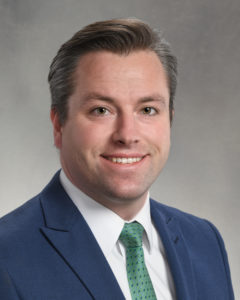
Justin Swanson is a partner at Bose McKinney & Evans, where he chairs the Cannabis Practice Group, and a principal at Bose Public Affairs Group. He is also co-founder and president of the Midwest Hemp Council – the leading trade organization for the hemp industry in the Midwest – working to build a supply chain and support the whole-hemp-plant economy.
Swanson is regarded as one of the country’s leading hemp lobbyists and hemp lawyers. He successfully led lobbying efforts to ensure the state would be the primary regulator of hemp production in Indiana after the passage of the 2018 Farm Bill. Swanson also led a legal team that successfully challenged a state law that criminalized part of the hemp plant, which was the first of its kind legal question.

Graham Owens serves as President of Delta Agriculture and is responsible for business development and managing regulatory affairs and also serves as the Co-Chair of the National Industrial Hemp Council’s Government Affairs Committee. Prior to Delta Ag, Graham was Director of Regulatory, Tax, and Domestic Economic Policy for the National Association of Manufacturers, the largest manufacturing industrial trade association in the United States, where helped lead the NAM’s advocacy before Congress and the executive branch on smarter regulations and common-sense legal reform that fit the modern manufacturing workforce.
Prior to his work at NAM, Mr. Owens served as a Legal Fellow for the think tank TechFreedom where he conducted legal research and writing on a variety of tech and telecom-focused regulatory issues, including consumer protection, antitrust, privacy & data security, and broadband deployment. Prior to that role, he served as a Professional Staff Member for the House Judiciary Committee and as a law clerk for the Federal Trade Commission and House Oversight Committee.
Mr. Owens is a recognized expert on good regulatory practices in and outside of hemp and has advised Congress and multiple regulatory agencies, including coauthoring testimony before the Senate Commerce Committee on FTC reform and serving as a member of the FCC’s Broadband Deployment Advisory Committee, on how to improve their regulatory and adjudicatory processes. He speaks frequently on emerging issues in consumer protection law, administrative law, and regulatory reform.
Graham received a bachelor’s degree from the University of Virginia, a law degree from George Washington University Law School, and is an active member of the District of Columbia Bar.
Dave Ladd currently serves as President of the Minnesota Industrial Hemp Association, a broad coalition of businesses and individuals who advocate for the re-emerging industrial hemp sector from field to consumer.
As a non-partisan voice in Washington, D.C. and St. Paul, MN the Minnesota Industrial Hemp Association is constantly monitoring public policy developments at the federal, state, and local levels of government regarding the legal industrial hemp industry to ensure the association’s members have a seat at the table.
Mr. Ladd has a broad range of contacts at the federal, regional and state levels. He has developed relationships with key leaders in production agriculture, the renewable energy sector, agribusiness, financial institutions, state and federal government and Capitol Hill. In addition, he is often looked to for his expertise regarding the current policy and political environments and has served as a consultant to numerous state and federal candidates.
.
International Trade Implications for Agriculture in Light of Ukraine
In this one-hour webinar, our speakers will share industry leader perspectives on potential international trade implications for the global and U.S. agricultural sectors rising from the recent unrest in Ukraine, including possible supply chain, global import, and global export impacts.
Speakers:
Corey Rosenbusch, President and CEO of The Fertilizer Institute
William H. Meyers, Professor Emeritus of Agricultural and Applied Economics at University of Missouri
Mariia Bogonos, Head of the Center for Food and Land Use Research, Kyiv School of Economics

William H. Meyers is Professor Emeritus of Agricultural and Applied Economics at University of Missouri and has worked on Ukraine projects and issues since 1991 with projects of Iowa State University, World Bank, FAO, USAID, USDA, Leibniz Institute of Agricultural Development in Transition Economies (IAMO) and University of Missouri. He has also hosted and advised numerous graduate students and faculties from Ukraine universities at MU and visited them at their universities. These efforts have produced numerous publications and reports on Ukraine agriculture and rural development.
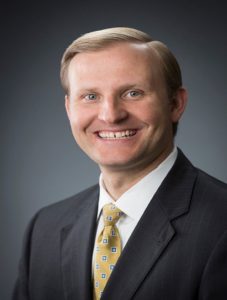
Corey Rosenbusch officially joined TFI as its President and CEO in February 2020. He previously served as President and CEO for the Global Cold Chain Alliance (GCCA).
Before joining GCCA, Rosenbusch lived in Indonesia implementing a United States Department of Agriculture (USDA) funded development project for The Borlaug Institute. Rosenbusch served as the National FFA President, representing the organization at state conventions and agriculture industry events.
Rosenbusch holds a degree in International Development from Harvard University and a Bachelor of Science degree in Agricultural Education from Texas A&M University. He serves as Chair of the Small Business Legislative Council and past chair of the National FFA Foundation’s Individual Giving Council.

Mariia Bogonos joined the Center for Food and Land Use Research of Kyiv School of Economics in March 2022. She specializes in agricultural and trade policy, impact analysis, agricultural markets projections and modeling, and economics of organic and nature-oriented agriculture.
In 2018-2021 she worked as a project officer at the Economics of Agriculture unit of the Joint Research Centre of the European Commission (DG JRC). There she mainly engaged in modelling and analysis of CAP and international trade.
Since 2016, as a long-term expert at the German-Ukrainian agricultural policy dialogue in Kyiv (APD Ukraine), she led the popularization of the use of policy modelling instruments in Ukraine. Mariia received her PhD and M.Sc. in Agricultural Economics from the University of Hohenheim (Germany,) and B.Sc. in Economic Cybernetics from Kyiv National Taras Shevchenko University (Ukraine).


